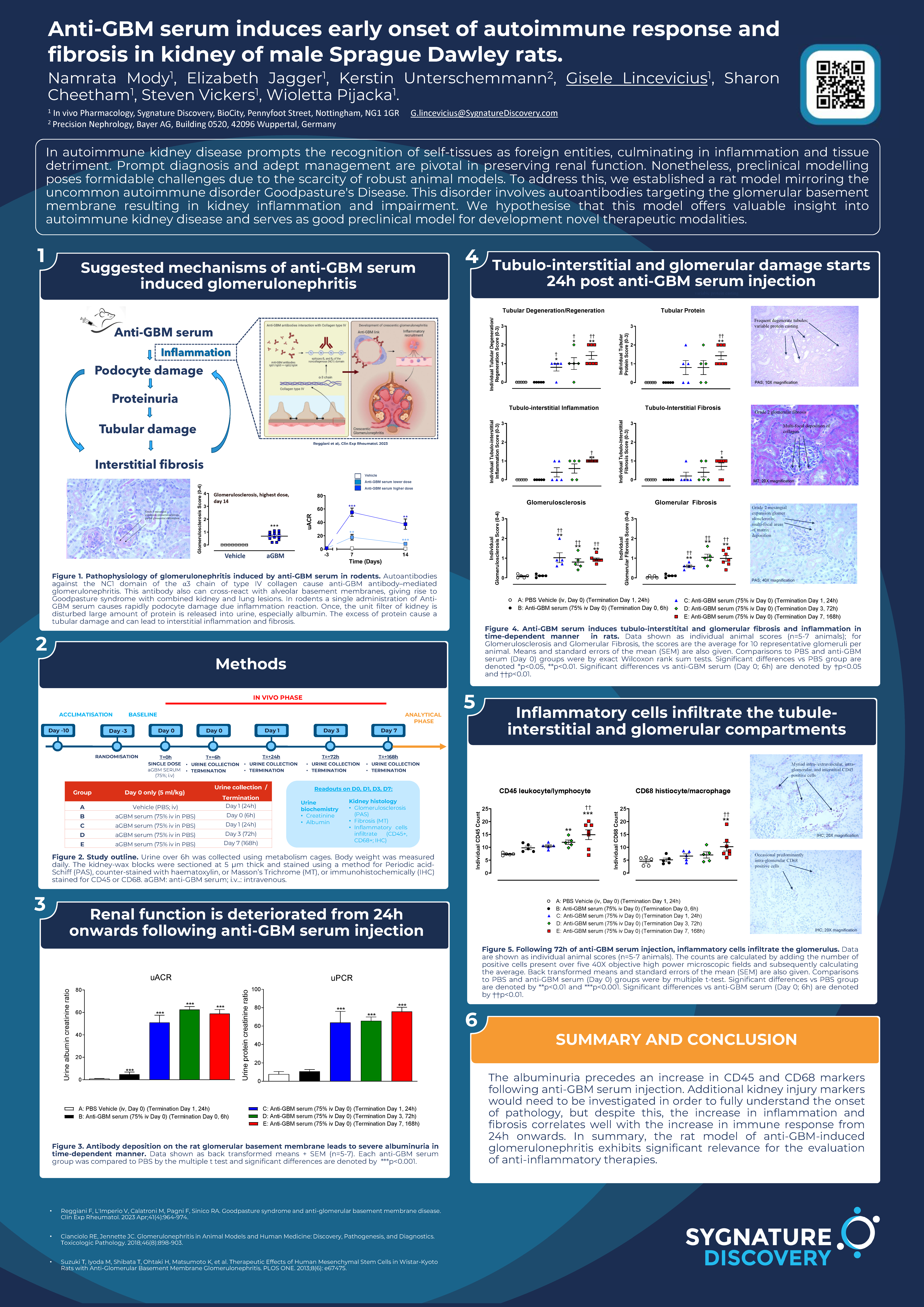Anti-GBM serum induces early onset of autoimmune response and fibrosis in kidney of male Sprague Dawley rats.
Human glomerulonephritis (GN) is a progressing inflammation of the glomeruli with various underlying causes. Anti-GBM nephritis, a severe form, involves autoimmune reactions targeting the renal glomerular basement membrane (GBM). We have developed the antibody-induced anti-GBM rodent model of glomerulonephritis that mimics human GN by rapid onset of inflammatory cell infiltration, fibrosis and proteinuria. Our study reveals significant kidney damage including inflammation and fibrosis within 24 hours of administering anti-GBM serum, with early detection of albuminuria at 6 hours. This model shows promise for preclinical testing of novel therapies for autoimmune kidney diseases.

